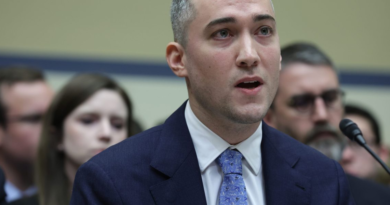Local communities are buying medical debt for pennies on the dollar–and freeing American families from the threat of bankruptcy
Medical debt is a uniquely American problem. We are the only developed country where one diagnosis can plunge a family into poverty.
Unlike other borrowing, no one chooses medical debt. Many Americans who fall ill have no choice but to rack up debt in order to stay healthy or, in some cases, stay alive. For the underinsured and uninsured, incurring debt is inevitable. In a June 2022 survey, 40% percent of adults said they were burdened with medical debt.
But progress on this issue is already underway. A recent report found that medical debt has fallen by almost 18% since 2020. This change is no coincidence, rather it points to the real impact that relief programs implemented under the Biden administration have had on everyday Americans.
One such program comes out of my city of Toledo, Ohio. In November, Toledo City Council passed a community-scale medical debt relief initiative in partnership with Lucas County.
Drawing inspiration from Cook County, Illinois, we partnered with the national charity RIP Medical Debt and devoted $800,000 of Toledo’s ARPA funds (and $800,000 of the matched commitment from Lucas county) to medical debt relief.
The way it works is simple: RIP Medical Debt purchases debt for pennies on the dollar and then relieves the debt. Our groundbreaking program will wipe out as much as $240 million in medical debt for as many as 41,000 people at a cost of only $1.6 million. There are no administrative hurdles for community members to overcome. Instead, relief recipients are simply sent a letter informing them their debt has been canceled.
Coming from a public health background, I believe health is the foundation of a functioning society. Amidst a devastating pandemic, I realized voices from public health were often missing from policy discussions and decided to run for office. I served on Toledo City Council, chairing the first standalone health committee, and am now serving my first term in the Ohio House.
Toledo is a struggling city and the pandemic hit us hard. People lost jobs or had to take low-paying jobs without adequate benefits. While the country is on its way to economic recovery, that recovery has been unequal as people with the highest need received the least assistance.
To address those disparities, the Biden administration enacted the American Rescue Plan Act (ARPA). The plan granted money to local governments like ours and empowered us to enact targeted solutions to our communities’ most serious challenges.
After supporting the use of ARPA funds for priorities like job creation, safe neighborhoods, and youth programs, I looked for other strategies to foster a stronger and more equitable recovery. Medical debt disproportionately affects lower-income and working-class households, where the budget is already stretched thin. Alleviating this burden helps families make ends meet and put food on the table.
Now, forward-thinking communities across the country are looking at implementing that model for their citizens. From New Orleans to Pittsburgh, recovery funds or other funds can be used to purchase medical debt for pennies on the dollar, delivering a life-changing impact for everyday Americans.
Polling finds overwhelming, broad-based support for our efforts. A recent national survey conducted by Tulchin Research finds that two-thirds of Americans (67%) would support the Toledo model for medical debt relief being adopted in their community, including strong majorities of Democrats, Republicans, and Independents.
I’ve come across many people who have lost their faith in government, frustrated with inaction and divisiveness. However, with the American Rescue Plan, local communities are empowered to implement innovative and effective policies that work for our people.
Everybody knows somebody who has medical debt. It harms the physical, mental, and financial health of our families and it’s the number one cause of bankruptcy. We need systemic change to end medical debt in America–but our local and state leaders shouldn’t wait for solutions from above.
For too long, we’ve looked the other way and allowed this problem to devastate families. I’m hopeful that this model of erasing medical debt can be a modest step toward a country where no one fears going bankrupt because they need life-saving care.
Michele Grim is the State Representative for Ohio House District 43, former Toledo City Councilwoman, and activist to abolish medical debt.
The opinions expressed in Fortune.com commentary pieces are solely the views of their authors and do not necessarily reflect the opinions and beliefs of Fortune.
More must-read commentary published by Fortune:
Fortune‘s CFO Daily newsletter is the must-read analysis every finance professional needs to get ahead. Sign up today.




